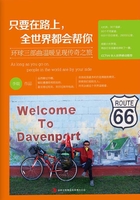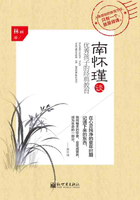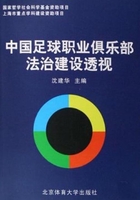Market-rights, toll-rights, and mile-rights (Meilenrecht) are the weapons with which the town creates for itself both revenue and a municipal policy. The soul of that policy is the putting of fellow-citizens at an advantage, and of competitors from outside at a disadvantage. The whole complicated system of regulations as to markets and forestalling is nothing but a skilful contrivance so to regulate supply and demand between the townsman who buys and the countryman who sells, that the former may find himself in as favourable a position as possible, the latter in as unfavourable as possible, in the business of bargaining. The regulation of prices in the town is, to some extent, a mere weapon against the seller of corn, wood, game, and vegetables from the country; just as the prohibition of certain industries or of trade in the rural districts, and the restrictions placed upon peddling were intended to serve municipal interests. The acquisition by the town of crown-rights (Regalien) was utilised, in the first instance, to bring about a reconstruction of these regulations for the benefit of the town. Thus the market-toll was usually abolished so far as burgesses were concerned, and only retained for the countryman and the unprivileged "guest" (Gast).
A complicated system of differential tolls was everywhere devised, by which some towns were favoured and others put at a disadvantage, in each case either in return for corresponding concessions or in accordance with the varying hopes or fears to which trade gave rise. The same purpose was served by the acquisition, wherever possible, of rights of toll on rivers and highroads in the neighbourhood. Day by day, as need arose, particular articles had heavier dues imposed upon them, or were forbidden for one or more market days, or excluded altogether, the importation of wine and beer, for instance, from towns in the vicinity was prohibited or restricted on countless occasions. The prohibition of the export of grain, wool, and woolfells was among the most usual means for regulating the local market in the local interest; and it constantly led to a complete stoppage of trade.
Such a stoppage was the severest method of coercion that could be employed in the competitive struggle; and, though it frequently hurt those who resorted to it, it was also often employed, especially by the stronger party, with great success and profit to itself. The limitation of the exportation of the currency and of the precious metals frequently occurs in the case of the towns as early as the thirteenth century. In intermunicipal commerce we find the first germ of the theory of the balance of trade. It is to be seen in the efforts the towns were constantly making to bring about a direct exchange of wares, and to render this compulsory, - as in the Baltic trade, - by statutes and ordinances which aimed at preventing the regular flow of the precious metals to foreign countries.
All the resources of municipal diplomacy, of constitutional struggle between the Estates (Stande), and, in the last resort, of violence, were employed to gain control over trade-routes (Strassenzwang) and obtain staple rights: to bring it about that as many routes as possible should lead to the town, as few as possible pass by; that through traffic, by caravan or ship, should, if possible, be made to halt there, and goods en route exposed, and offered for sale to the burgesses. The whole well-rounded law as to strangers or "foreigners" (Gast- oder Fremdenrecht) was an instrument wherewith to destroy, or, at all events, to diminish the superiority of richer and more skilful competitors from outside. Except during a fair, the foreigner was excluded from all retail trade, allowed only to remain a certain time, and prohibited from lending money to or entering into partnership with a burgess. He was burdened with heavier dues,fees for setting up a stall, for having his goods weighed, and for the services of brokers and exchangers. The gild-organisation, which arose out of local market-privileges, and was formed with local objects, reached its aim,- which was to ensure to each master and each craft a livelihood suitable to their station in life, - chiefly by the readiness of the town council, whenever it appeared to them necessary, to limit for a season, or permanently, the entrance into the town of bread and flesh, beer and wine, and wares of all kind from far or near, as well as to forbid, for a year or more, the admission of new masters to a particular occupation. In short, the town market formed a complete system of currency, credit, trade, tolls, and finance, shut up in itself and managed as a united whole and on a settled plan; a system which found its centre of gravity exclusively in its local interests, which carried on the struggle for economic advantages with its collective forces, and which prospered in proportion as the reins were firmly held in the council by prudent and energetic merchants and patricians able to grasp the whole situation.
What, then, we have before our eyes in the Middle Ages are municipal and local economic centres whose whole economic life rests upon this, - that the various local interests have, for the time, worked their way into agreement, that uniform feelings and ideas have risen out of common local interests, and that the town authorities stand forward to represent these feelings with a complete array of protective measures; measures that differed, of course, from place to place and from period to period, according as the provision of the local market or the prosperity of a particular industry or trade seems to be most important at the time. The whole of this municipal economic policy, with all its local partiality, was justified so long as the progress of civilisation and of economic well-being depended primarily on the prosperity of the towns. This prosperity could rest upon no other "mass-psychological cause-complex" than corporate selfishness:















